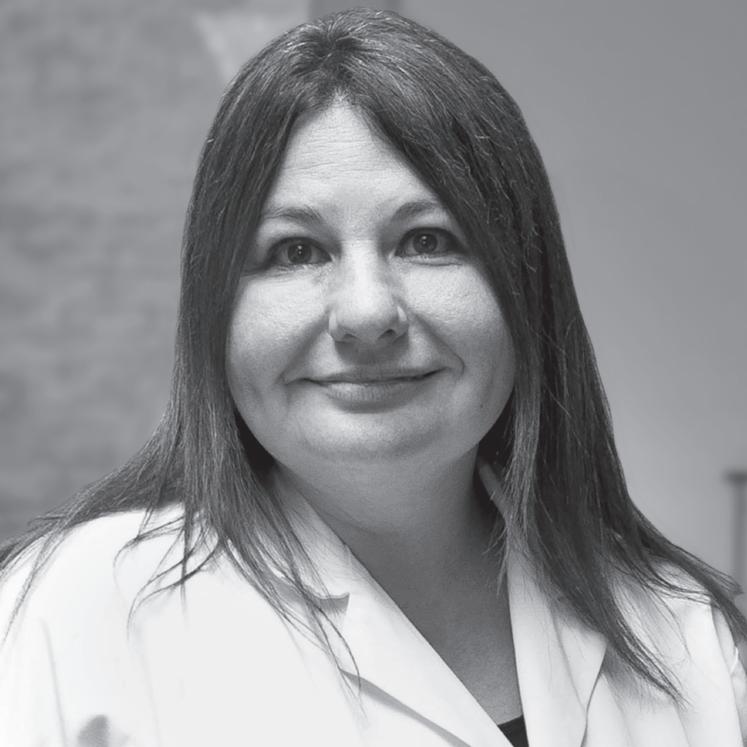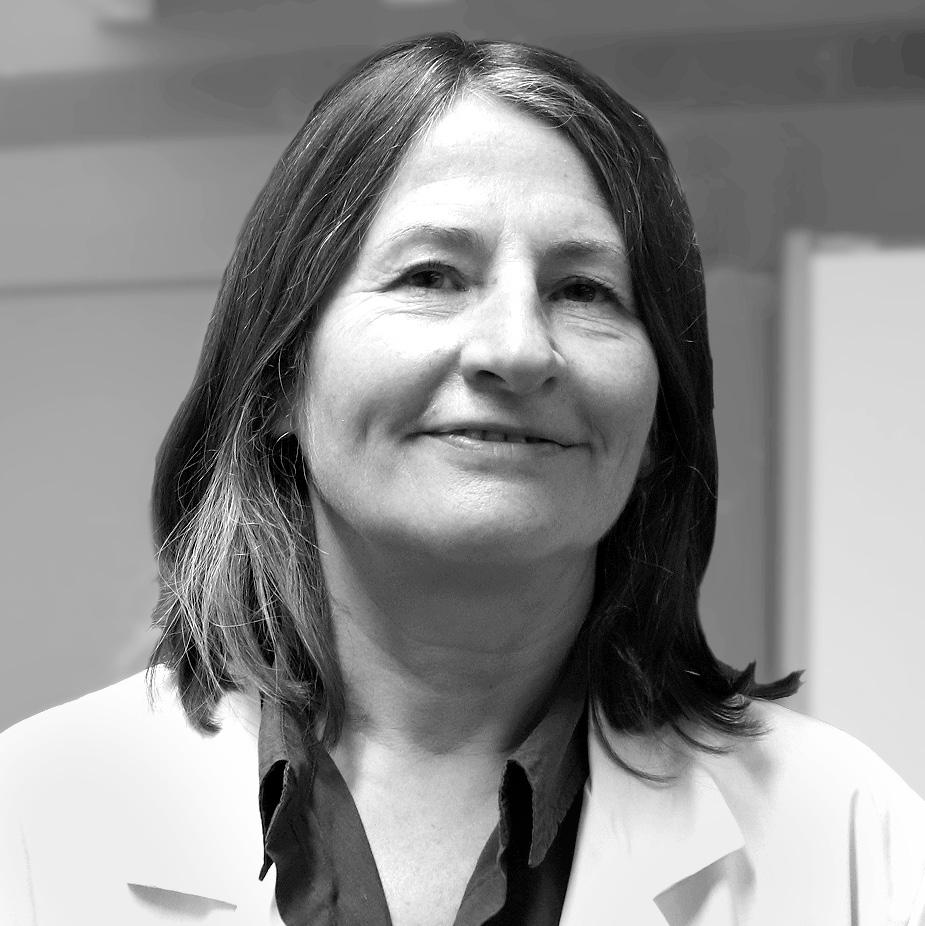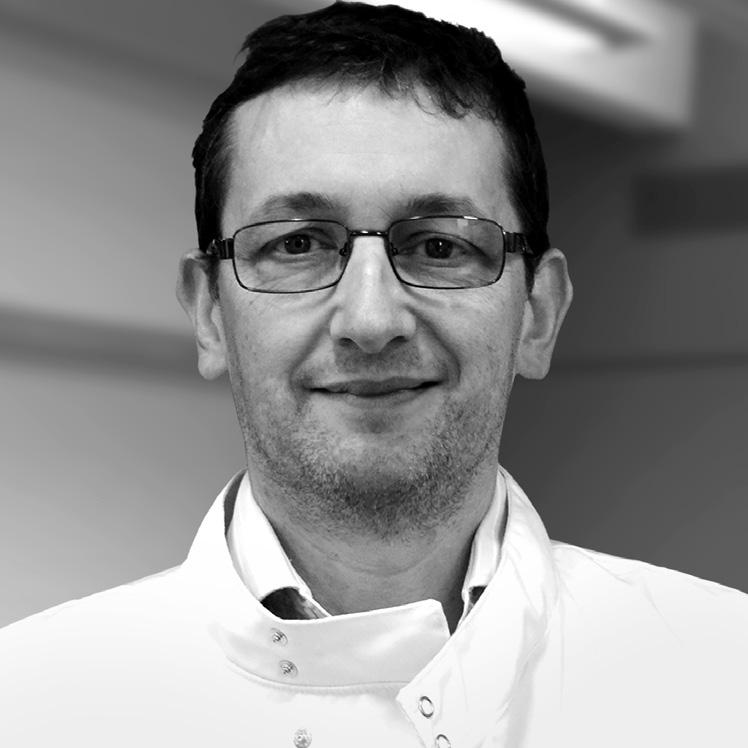
7 minute read
OUR GRANTS
Current projects
Dr Christine Galustian
Advertisement
Immunotherapy: helping the body fight back
The aim of this project is to repeat the success of immunotherapy in treating other cancers in prostate cancer. IL-15 is the molecule being studied by Dr Galustian and her team. It has already been shown to be effective in mice with prostate tumours and the plan is for it to enter clinical trials in humans by the end of 2019.
Immunotherapy enhances the natural ability of the immune system to kill cancer cells. Prostate cancer can be a tricky target as it reduces the activity of the immune system. This means that many immunotherapies are inactivated once they reach the tumour. This research so far has enabled the creation of a version of IL-15 that can be injected directly into tumours and will stay there by sticking to cancer cells. This has been shown to reduce tumour growth in mice. Combination treatment with another immunotherapy drug has cleared tumours completely from mice. After these extremely exciting results, it is now important to ensure the drug is safe for humans and that it works for prostate cancer patients. If these clinical trials produce positive results, it could result in a new treatment being available to treat, and maybe even cure, hormone resistant disease.

Dr Aamir Ahmed
Prostate Cancer Stem Cells
The research in Dr Ahmed’s group aims to translate fundamental knowledge of stem cells and cancer biology into therapies. The laboratory is particularly interested in the Wnt cell signaling pathway, which plays a key role in cancer and is also very important for the regulation of stem cells. Through research which was funded by the PCRC, Dr Ahmed discovered that Wnt pathway appeared to play an important role in prostate cancer.
His team are now aiming to translate their knowledge of Wnt signaling in prostate cancer into safer therapies and better diagnosis.
Dr Magali Williamson
The Spread of Prostate Cancer
The aim of this project is to investigate the role of a protein called PLEXINB1 in the spread of prostate cancer. Other scientists have already shown that patients with lots of this protein are at higher risk of their disease spreading. The ultimate goal is to develop treatments to stop the spread of the disease, especially when other types of treatment have stopped working.
Work has already been done by the team to find out how PLEXINB1 may contribute to resistance to hormone therapy. PlexinB1 helps the cancer to evade this treatment and continue to grow in spite of it. PLEXINB1 may also help cancerous cells to divide more quickly. By blocking these activities it may be possible to slow the development of hormone resistance, slow cancer growth and reduce the likelihood of the cancer spreading.
So far the team has succeeded in producing antibodies against PLEXINB1. Antibodies are produced by the immune system to fight disease, but scientists can also make antibodies that bind to normal proteins in the body, such as PLEXINB1. Antibodies binding to PLEXINB1 stops it from working. This will prevent PLEXINB1 from helping cancer to grow. Building on this achievement, further PCRC funding will enable Dr Williamson to see if the antibody helps to stop the spread of prostate cancer in mice. This is in collaboration with another PCRC funded project in Cardiff that has prepared mice in which these antibodies can be tested.

Professor Matthew Smalley
Modelling Prostate Cancer
The lack of advanced prostate cancer models is hindering progress. PCRC funded experts at Cardiff University’s European Cancer Stem Cell Research Institute, are working to overcome this. They are developing innovative, world-first models to test the effectiveness of treatments for metastatic prostate cancer, to see if they are good enough and safe enough to be tested in humans.
The team have already used their models to help PCRC scientist, Dr Williamson, validate protein PlexinB1 as a therapeutic target to treat prostate cancer. This is an indication of how valuable these models are and they can be used to further test any and all potential therapies before they go to clinical trial, which will save researchers a lot of time and money.

OUR GRANTS
New projects
PCRC exists to support inspiring scientists so that they achieve breakthroughs. We ran an open, competitive funding call and designed a robust, thorough process to select the proposals which were of the highest quality and most likely to make a difference for men with prostate cancer.
By contacting universities directly to publicize our grant call, we put this opportunity in front of more excellent scientists. We kept our Stage 1 Application form brief so that scientists didn’t have to spend too much time away from their vital research work to fill in a long application which might fall at the first hurdle. At Stage 2, we asked for detail, and every Stage 2 Application was thoroughly reviewed by at least 2 ‘peer reviewers’ – experts in the field who were carefully chosen according to their position in the field, the relevance of their expertise to the application, and not having any kind of Conflict of Interest that would compromise their ability to assess the application fairly.
We are incredibly proud to have had a group of patients involved in selecting which projects to fund. We fund work which is of high scientific quality and of direct relevance to patients, so it was crucial to involve both scientific experts and patient representatives in this process.
Applicants were sent feedback from both the Patient Panel and from their peer reviewers, and given the opportunity to reply. In many cases this led to important clarifications.
We have had feedback from applicants praising the clarity and strength of our process, the fact that we didn’t unnecessarily delay or draw out our decisions, and the efficient and friendly communication they had with us.
We are excited to be launching seven new projects this year, all of which are world-class.
To improve this process even further, we are undertaking an extensive in-house project to better understand the knowledge and funding gaps which are standing in the way of much-needed scientific progress. The results of this work will shape the direction of our future grant calls. We are also committed to continuously finding innovative ways to facilitate greater involvement of people directly affected by prostate cancer in our charity. HORMONE THERAPY
This year we will fund two projects that focus on hormone therapy resistance. Whilst they differ in scope, having these complementary projects offers the opportunity for our scientists to collaborate on their outcomes and unite the ecosystem.
Professor Iain McEwan
Bypassing hormone therapy resistance and targeting ADT resistant prostate cancer
Location | Institute of Medical Sciences, University of Aberdeen Amount | £390k Type | Hormone Therapy Reasons to fund: • Leading researcher in the field of AR • Early stage work leading to novel treatment approaches • It could have a significant impact on men with advanced disease
Dr Luke Gaughan
Understanding why cancerous cells become resistant to hormone therapy
Location | Newcastle University Centre for Cancer Amount | £440k Type | Hormone Therapy Reasons to fund: • Addresses major issues with current AR therapies resistance • Early stage work leading to novel treatment approaches • Highly respected group at Newcastle University Centre for Cancer • Tackling resistance is important and impactful
CLASSIFYING PROSTATE CANCER
Dr Daniel Brewer
Identifying shared characteristics of prostate cancer for more personalised treatments
Location | UEA and Big Data Institute, Oxford Amount | £426k Type | Characterisation of PCa subtypes Reasons to fund: • Groundwork for translation to clinical use • Links to PanProstate Adjunct Clinical Trials
Network and CRUK • Diversification of portfolio into data science • Positive perception of more personalised medicine
Professor Gerhardt Attard
Analysing tumour responses to treatment combinations for more effective treatments
Location | Cancer Institute, UCL Amount | £408k Type | STAMPEDE consortium analysis/ profiling Reasons to fund: • Potential to improve clinical practice in relatively short time frame • Leading researcher in PCa field • Links to STAMPEDE trial
OUR GRANTS
Pilot projects
RADIOTHERAPY
Dr Bart Cornelissen
Investigating why radiotherapy treatments work for some and not others
Location | University of Oxford Amount | £100k Type | Improving radiotherapy Reasons to fund: • Potential to improve emerging therapy and enhance clinical practice in relatively short time frame • Diversifies portfolio into imaging science and radiotherapy • Combines basic research and pre-clinical research
Dr Harveer Dev
Understanding why certain tumours are vulnerable to DNA-Damaging Agents (DDAs), such as radiotherapy and PARP inhibitors, to identify who will benefit from these treatments
Location | Gurdon Institute, University of Cambridge Amount | £100k Reasons to fund: • Diversifies portfolio into DDA • Consistent with multiple grant criteria/ clinical treatment of advanced disease and research into classifications • Support highly promising early-career scientist as part of group that has pioneered DDA for other cancers TUMOUR SUPPRESSOR GENES
Dr Jorge de la Rosa
Investigating why the tumour suppressor gene PTEN is altered and how these key faulty genes play a role in tumour growth and spread
Location | Cambridge Amount | £100k Type | PTEN Reasons to fund • Potential to uncover genetic causes of metastatic prostate cancer • Provide tools for genomics/ support other prostate researchers • Supports highly promising early-career researcher in getting over activation barrier





